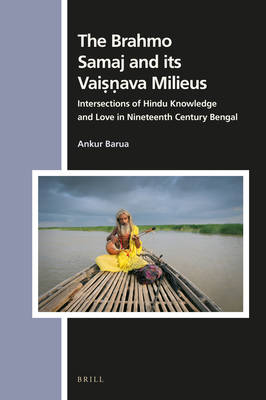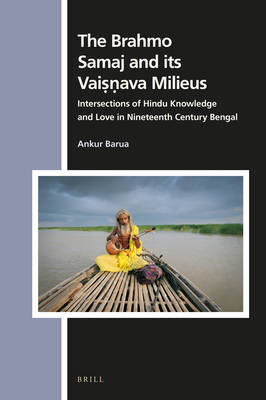
- Afhalen na 1 uur in een winkel met voorraad
- Gratis thuislevering in België vanaf € 30
- Ruim aanbod met 7 miljoen producten
- Afhalen na 1 uur in een winkel met voorraad
- Gratis thuislevering in België vanaf € 30
- Ruim aanbod met 7 miljoen producten
Zoeken
The Brahmo Samaj and Its Vaiṣṇava Milieus
Intersections of Hindu Knowledge and Love in Nineteenth Century Bengal
Ankur Barua
€ 233,95
+ 467 punten
Omschrijving
In The Brahmo Samaj and its Vaiṣṇava Milieus: Intersections of Hindu Knowledge and Love in Nineteenth Century Bengal, Ankur Barua offers an intellectual history of the motif of religious universalism in the writings of some intellectuals associated with the Brahmo Samaj (founded in 1828). They constructed Hindu worldviews that were simultaneously rooted in some ancient Sanskritic materials and orientated towards contemporary universalist visions with western hues. These constructions were shaped by their dialectical engagements with three groups: members of the Bengali middle classes with sceptical standpoints ('Young Bengal'), Christian missionaries, and Hindu Vaiṣṇava thinkers. In this genealogy of religious universalisms, Barua indicates how certain post-1900 formulations of the universalist compass of Hinduism were being enunciated across Brahmo circles from the 1820s.
Specificaties
Betrokkenen
- Auteur(s):
- Uitgeverij:
Inhoud
- Aantal bladzijden:
- 272
- Taal:
- Engels
- Reeks:
- Reeksnummer:
- nr. 170
Eigenschappen
- Productcode (EAN):
- 9789004445246
- Verschijningsdatum:
- 21/01/2021
- Uitvoering:
- Hardcover
- Formaat:
- Genaaid
- Afmetingen:
- 155 mm x 235 mm
- Gewicht:
- 576 g

Alleen bij Standaard Boekhandel
+ 467 punten op je klantenkaart van Standaard Boekhandel
Beoordelingen
We publiceren alleen reviews die voldoen aan de voorwaarden voor reviews. Bekijk onze voorwaarden voor reviews.








